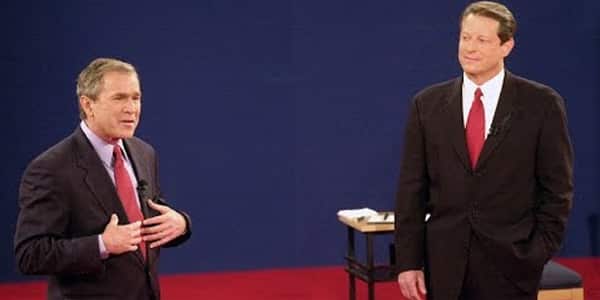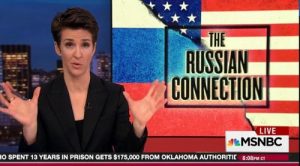Former Vice President Al Gore and future President George W. Bush debate before the 2000 election (Photo: YouTube screenshot)
By William E. Trachman
Real Clear Politics
Over 20 years ago, the U.S. Supreme Court issued its decision in Bush v. Gore. By a 7-2 majority, the court thought that Florida’s vote-counting standards didn’t satisfy the Constitution’s Equal Protection Clause. (The decision to end the vote counting, with George W. Bush in the lead in Florida, was issued by a narrower 5-4 majority).
What you might not know is that three of the justices in the majority wrote an entirely separate opinion in the case, noting that the Constitution also prohibited state courts such as Florida’s highest one from essentially enacting laws determining how and when ballots can be counted, given that those laws are reserved to “state legislatures.” But since that opinion wasn’t signed by a majority of the justices — only three — it never became the law of the land.
TRENDING: They got away with cheating in November – now what?
Fast-forward to the 2020 election. During a global pandemic, several state courts altered voting laws to expand the availability of mail-in balloting in the presidential election. In Pennsylvania, for instance, the state’s highest court extended the deadline by three days for the arrival of ballots that were mailed by Nov. 3, 2020. And the court went further, saying that ballots didn’t even need a postmark to prove that they were mailed by the deadline, so long as the ballot was received by the close of the three-day window. This ruling was challenged, but the Supreme Court divided 4-4 on whether to consider blocking it from going into effect before the election.
President Trump lost Pennsylvania. But set aside the issue of whether court-driven changes to voting laws made an impact on the 2020 election. That’s a question that partisans on both sides can debate endlessly. The more important question is whether it is legal for state courts to change voting laws unilaterally, or whether that is a power reserved only to state legislatures.
Unfortunately, the U.S. Supreme Court dodged an opportunity on Feb. 22 to answer this precise question. Instead, it left us twisting in the wind on a legal controversy that is likely to reoccur, perhaps with profound consequences, in a future election. Six justices — including Brett Kavanaugh, who previously voted to hear the case — apparently thought that the issue was moot now that the 2020 election is over. But three justices, among them Clarence Thomas, dissented from that holding, wanting to do the right thing by hearing the case and finally settling the question of whether state courts have authority to, in effect, enact voting laws.
Thomas wrote an elegant dissent, reminding his colleagues on the court that it has previously heard numerous election cases that were ostensibly “moot” because the election was over. In general, the court’s doctrines allow it to hear cases when they address legal conflicts capable of repetition, but that evade review because of a particular legal dispute’s short lifespan. Because legal disputes often arise close to Election Day, the court relies on these doctrines to be able to resolve important legal questions. It wouldn’t be possible for the courts to fully address some election-related disputes otherwise.
“One wonders what this Court waits for,” wrote Justice Thomas. “We failed to settle this dispute before the election, and thus provide clear rules. Now we again fail to provide clear rules for future elections.” Thomas called it “baffling” that the court has left election law hidden under a shroud of doubt. “By doing nothing,” he warned, “we invite further confusion and erosion of voter confidence. Our fellow citizens deserve better and expect more of us.”
Indeed, what is the court waiting for? When else will it have a better opportunity than the one just passed up? Members of the court may be understandably hesitant to intercede decisively in an election, as the court arguably did in Bush v. Gore. But in this case, the 2020 election had already been decided. The court had a golden opportunity to address this legal controversy without the added weight of potentially deciding the outcome of an election. In other words, the court missed the opportunity to set the ground rules for the next election. Now, it may be confronted with the same question in a more heated and high-stakes context down the road.
So, brace yourself for the 2022 midterms: The state courts will continue to preside over elections with yet-to-be-determined limits on their powers; voting laws may change at the drop of a hat; and voters may go into the election without knowing for sure what laws may apply to their ballots. Maybe the U.S. Supreme Court will finally step in then. But Justice Thomas is right. The American people deserve better, and they deserve better now.



